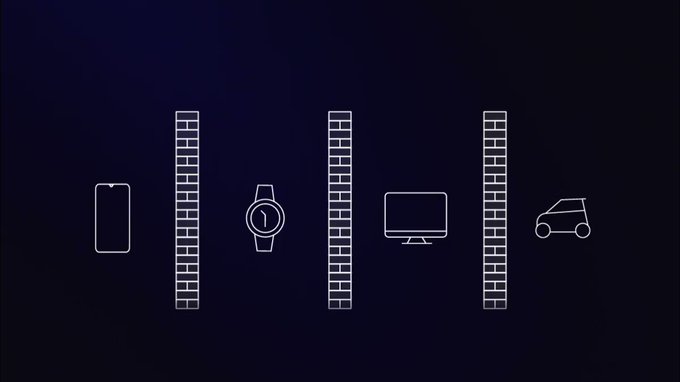A modularized #HarmonyOS can be nested to adapt flexibly to any device to create a seamless cross-device experience. Developed via the distributed capability kit, it builds the foundation of a shared developer ecosystem #HDC2019
Huawei plans to launch HarmonyOS on “smart screen products” later this year, before expanding it to work on other devices, like wearables, over the next three years. Huawei doesn’t explicitly say what constitutes a “smart screen” device, but its subsidiary Honor is expected to bring the OS to a smart TV according to a report in Reuters. The initial focus for the operating system will be China before Huawei expands it to other markets.
In a press release, the CEO of Huawei’s consumer business group Richard Yu says that HarmonyOS is “completely different from Android and iOS” because of its ability to scale across different kinds of devices. “You can develop your apps once, then flexibly deploy them across a range of different devices,” the CEO said.
Previously, it’s been unclear whether HarmonyOS would be an operating system for smartphones or for internet-of-things devices. It now appears that it’s designed to power both, similar to Google’s experimental Fuchsia operating system, which is designed to run on various form-factors.
Huawei is yet to announce a device running the new operating system, but the company is expected to launch a successor to the Mate 20 Pro smartphone in the fourth quarter of this year.

It isn’t yet clear how much need Huawei will have for its own in-house operating system going forward. Since placing Huawei on the Entity List, the Trump administration has indicated that it’s willing to ease the restrictions on the company.
In July, senior officials said that the administration would grant licenses to deal with Huawei in instances where national security wouldn’t be impacted. However, yesterday Bloomberg reported that the White House is delaying its decision about issuing these licenses in the wake of China’s decision to halt purchases of US farming goods.
It’s yet another suggestion that the Huawei restrictions have as much to do with the US-China trade war as they do with protecting national security.
HarmonyOS now has an official name, but it still has some major hurdles to overcome. Huawei is expecting developers to recompile their apps for this new operating system, with the ability to code once and deploy across multiple devices with different screen layouts, interactions, and more.
Huawei says developers can compile a range of languages into machine code in a single environment, but it’s unclear exactly how easy that will be for developers. There are a lot of big promises here, but it’s going to be an even bigger challenge to build up an app ecosystem to rival both Android and Android Open Source Project (AOSP).










